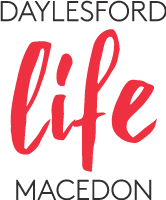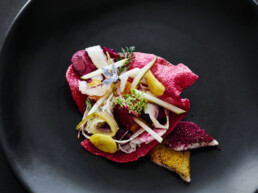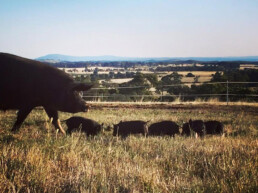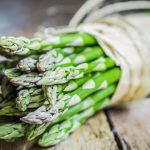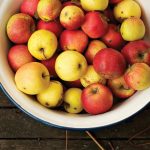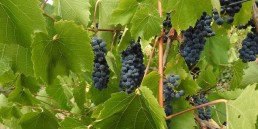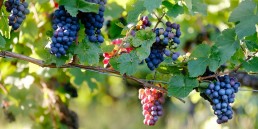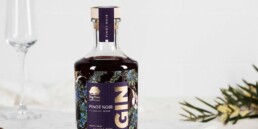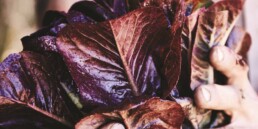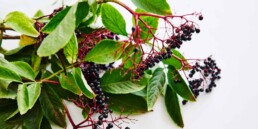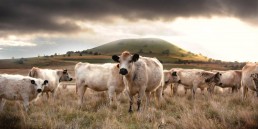It has been a privilege to monitor the awakening of global best practice producers in Australia over much of the past 40 years.
In fact, it has been doubly a privilege for me – not only as a chef, always on the lookout for the best – but also as a long-term judge sitting at the table of various national awards identifying and promoting Australia’s intent on providing the best and most beautiful produce using sustainable practices.
What has been particularly gratifying is seeing some of our local producers continue to be awarded trophies and gold medals at a national level.
What commenced as a slow trickle years ago, is now a steady stream of primary producers, growers and artisan manufacturers, all with an eye on the regenerative farming of rare animal breeds and heritage varieties of fruits and vegetables, particularly suited to our local climate and terrain.
Historically, Australia is not a country of small-scale artisan farmers and producers passing on a legacy of manufacturing and cultivation skills from one generation to the next. We never had that kind of peasant class. Compared to us, countries like France and Italy have a head start of several centuries of good food culture. In Australia, early land allocation to settlers had mostly gone to urban folk with no agricultural experience, who worked within the then accepted notion that our resources here, of both land and water, were virtually limitless. What could go wrong?
Plenty, as we discovered. Intensive industrial meat, poultry and fish farming requires substantial chemical inputs into feed to ensure that the animals stay alive. Limitless clearing for pasture leads to increased salinity and many other resource issues. Other thoughtless agricultural practices further deplete already lifeless soils requiring even more herbicide and fertilizers.
Mind you, years ago, when the first stirring of interest in ‘local producers’ emerged amongst Australian chefs and their clientele, the agenda was to promote colourful stories and characters rather than any concerns over sustainability or ‘good food’. Marketing campaigns run by tourism bodies touted ‘food and wine trails’. And small businesses with little hope of survival bought into a half story, not destined to last.
Nowadays, there is a real appreciation of the efforts of Australian growers, and a genuine understanding of our good fortune in having access to some of the best produce in the world. The dedication and concern of these producers is helping ensure that there will be a ‘good food’ future for Australia, through best animal husbandry and agricultural practices.
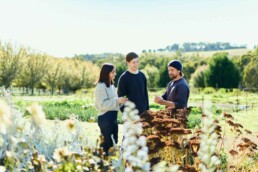
The resulting ‘best produce’ is not only venerated by chefs and good cooks producing nutritionally appropriate and delicious food, but it also aids in promoting better levels of health within our communities.
Poorly raised animals within the still dominant industrial food system, together with a reliance on toxic herbicides for plant growth and the massive additives rampant in processed food, have no doubt led to the increase in ‘first world’ diseases and health problems that continue to plague us.
But thankfully, the tide has been turning. We are all capable of being agents for change. Support your local food community. Grow some food for yourself. Shop at accredited farmers’ markets and engage in conversations with growers and producers. Ask your favourite chefs about the provenance of the ingredients they use. Interest and demand will fuel the important outcomes that this beautiful country and our communities need.
And when you next visit our region, take an interest in the local produce available at our markets and being served in our pubs, cafes and restaurants.
“Nowadays, there is a real appreciation of the efforts of Australian growers”
If you are staying with us at Lake House, be sure to join a tour of our beautiful Dairy Flat Farm. You’ll discover the lodge, the bakery, the orchard, olive grove and acres of vegetable plantings. It’s just a few clicks down the road and it’s our investment in the local food sustainability story. And, most of what you will enjoy at our table will have been harvested that morning. Our café Wombat Hill House in the Daylesford Botanic Gardens also not only uses our farm harvest, but sells beautiful sour dough loaves and pastries – baked at our farm that morning.
Don’t forget that there’s a farmer’s market operating somewhere in our region every weekend. So get out there, shop with the locals (tip: they get to the markets early) and enjoy the best, good for you, produce to be had in the region.
If it’s Daylesford’s Sunday Market that you visit – you’re likely to meet Florian from Mt Franklin Organics; Ed from Adsum Farmhouse; the Brooklands Free Range Farms family; Two Fold Bake House and Nardia from Goldfields Farmhouse Cheese. If the glorious country air brings on an appetite rush – the Dobson family from Korweinguboora will be there cooking up a storm of wonderful organic falafels and other deliciousness.
We look forward to welcoming you.
Hero image: Fresh Regional Produce, by Inkd Fotogrfa
Places Mentioned
About the author

Alla Wolf-Tasker AM, Lake House
Alla Wolf-Tasker AM’s story is the stuff of legend. With over 30 years in the region, she has transformed a downtrodden country plot of land into a thriving culinary restaurant, and consequently a food-producing community. Lake House is recognised around the world as one of this country’s great restaurants, and it continues to win numerous accolades within Australia and overseas.
- Alla Wolf-Tasker AM, Lake Househttps://daylesfordmacedonlife.com.au/author/alla-wolf-tasker-am-lake-house/
- Alla Wolf-Tasker AM, Lake Househttps://daylesfordmacedonlife.com.au/author/alla-wolf-tasker-am-lake-house/April 4, 2018
- Alla Wolf-Tasker AM, Lake Househttps://daylesfordmacedonlife.com.au/author/alla-wolf-tasker-am-lake-house/June 16, 2018
Share this article
Come Back to Life
Come and explore our beautiful region, it’s the perfect place to unwind, recharge and rejuvenate. The best bit, we’re only an hour or so from Melbourne.
While You're Here
Cool Country | Daylesford Winery Tours
There is something very earthy and natural about the Macedon Ranges; it’s kind of untouched, yet so…
Dark Moon Rising | Daylesford Wine
Australia is known the world over for its wine, with over 150 grape varietals grown commercially…
New Drinks To Savour
They say variety is the spice of life. When it comes to drinks, we all have our favourites, and,…
Wellness and Local Food
What’s the big fuss about “local food”? For a moment it felt very much like a fad. And sometimes,…
Food from Local Woods, Meadows, Farms & Gardens
Good food, together with good sleep, prioritising exercise (even if it’s just a ramble through our…
Grass Fed & Free-Range
On the mineral rich volcanic pastures of Blampied, you will find one of the oldest rare breeds of…
